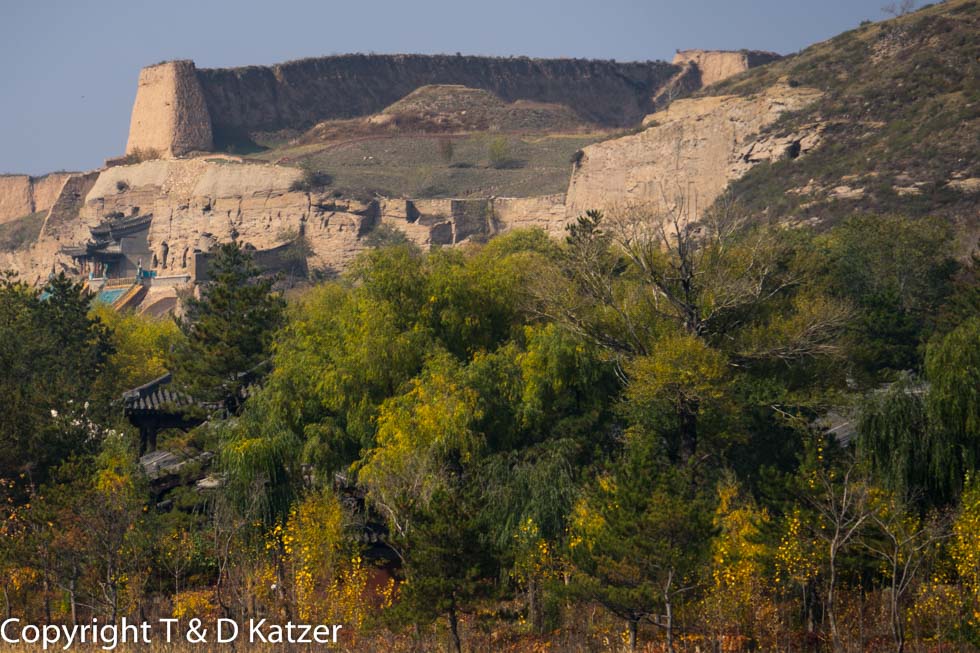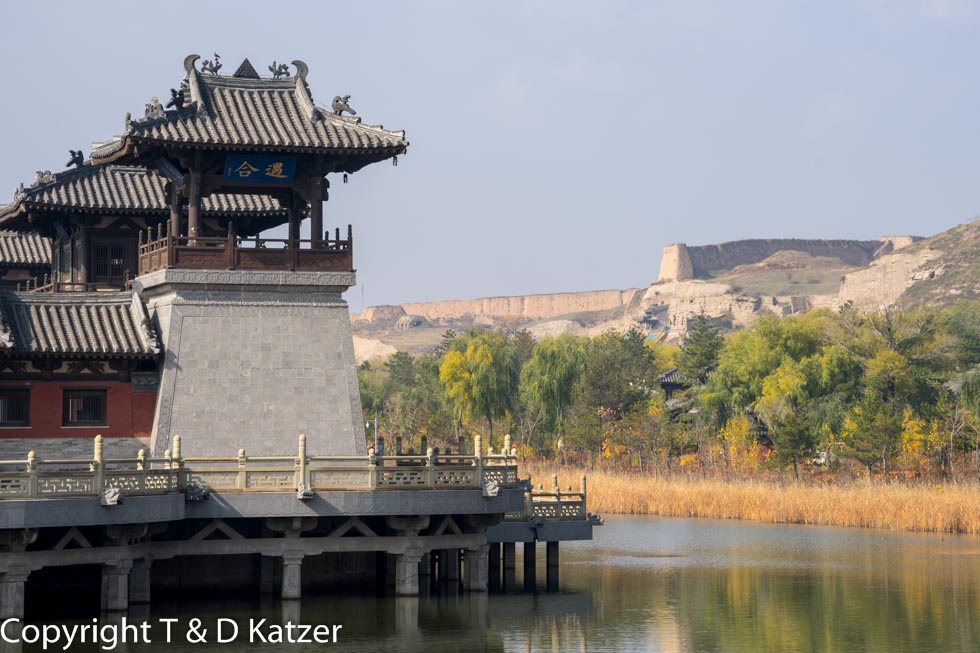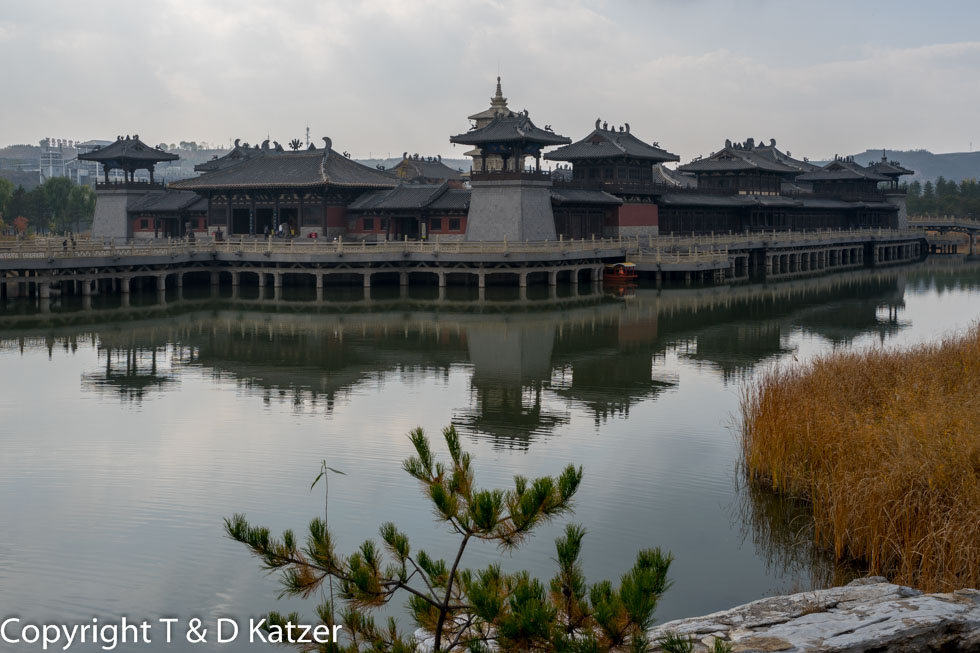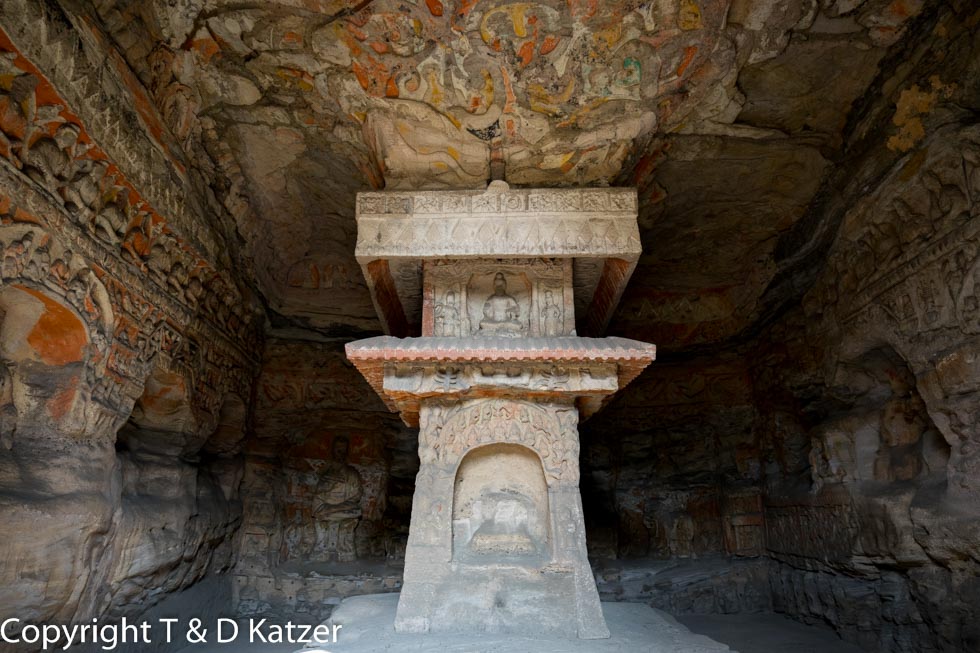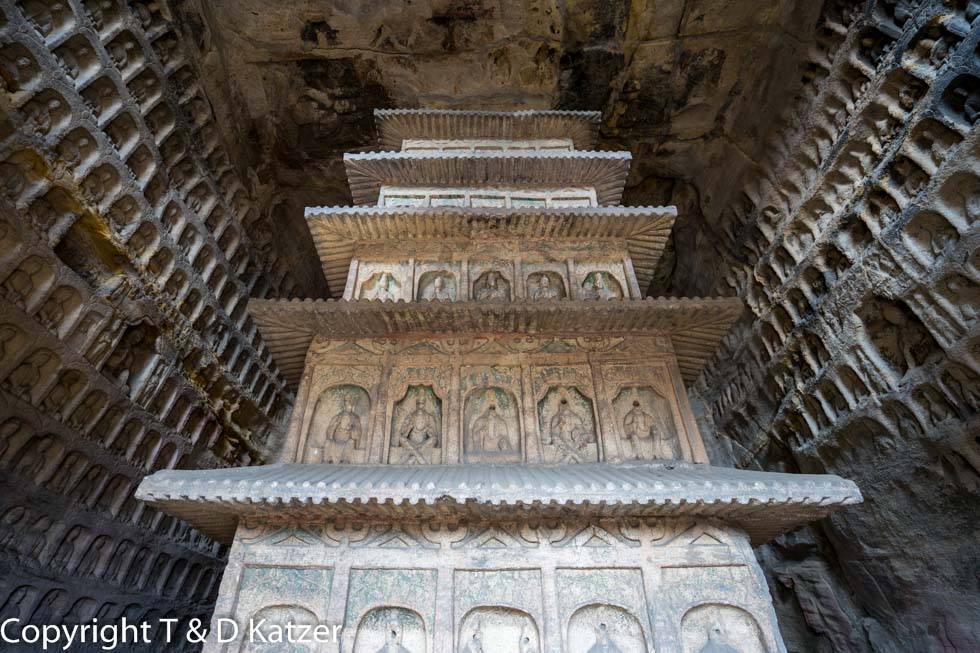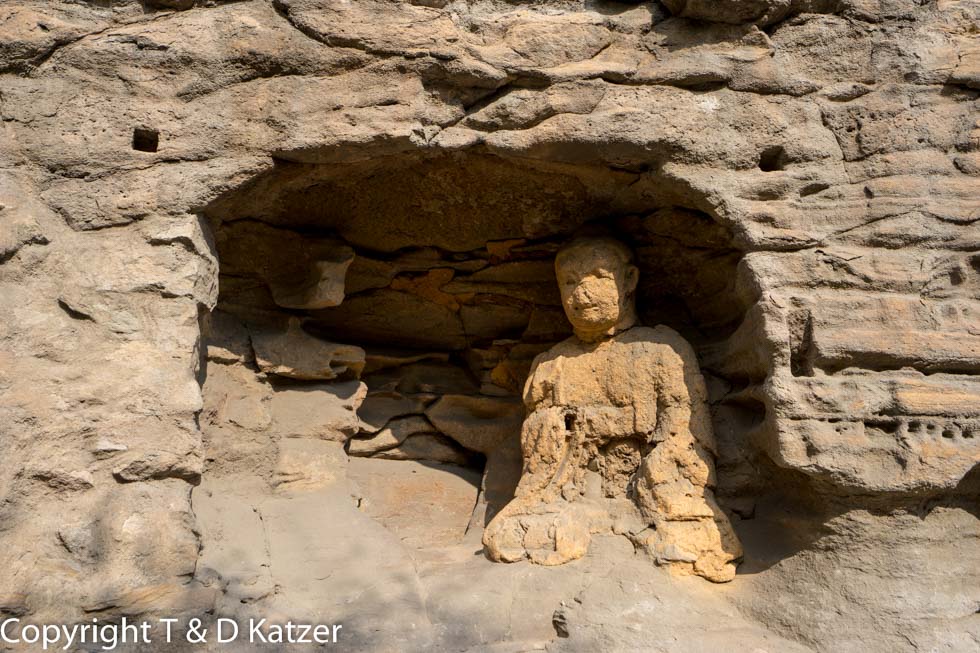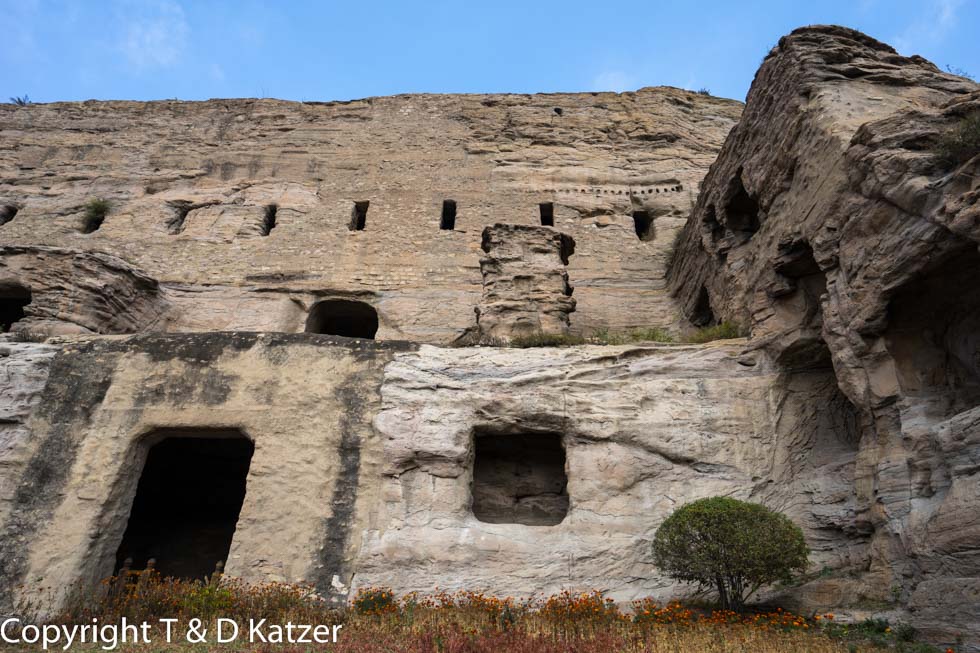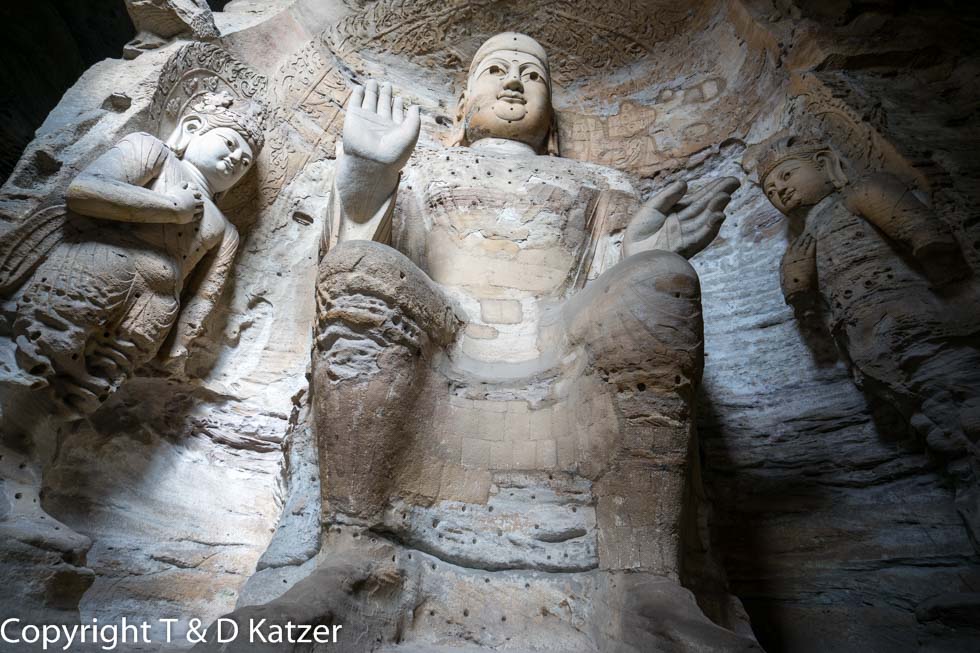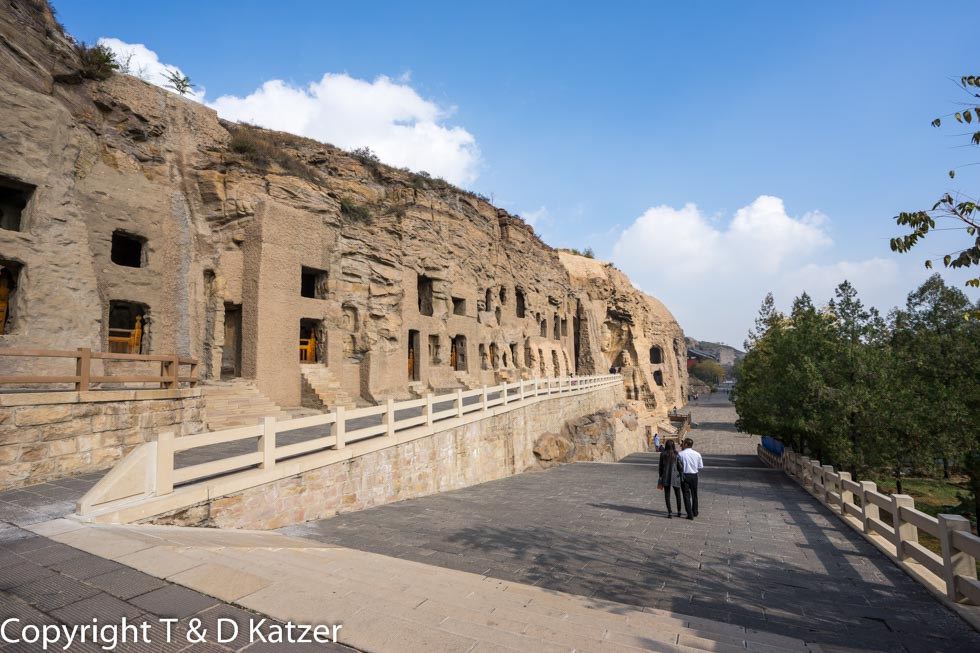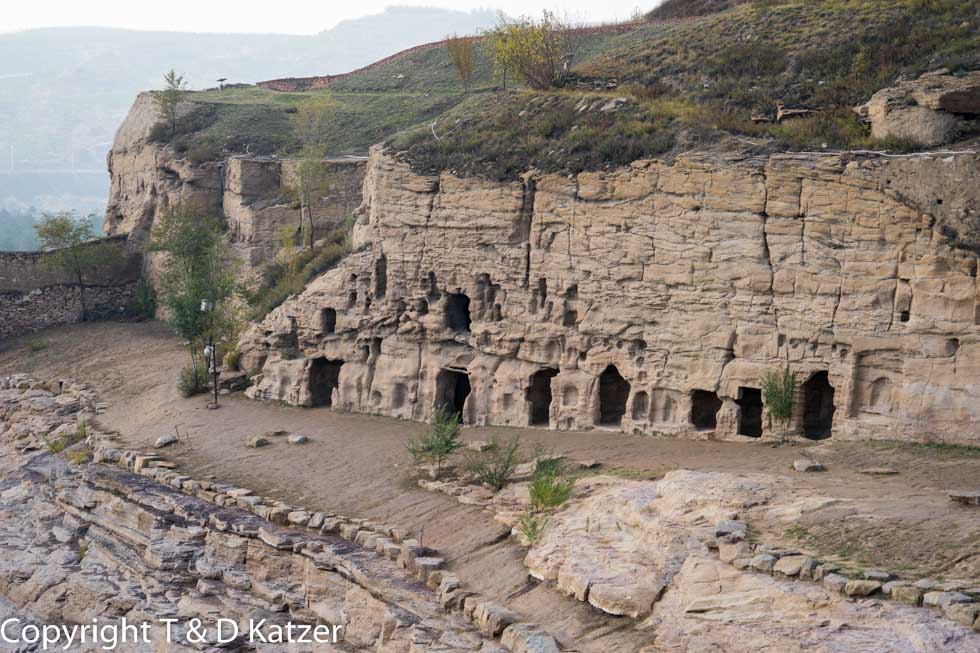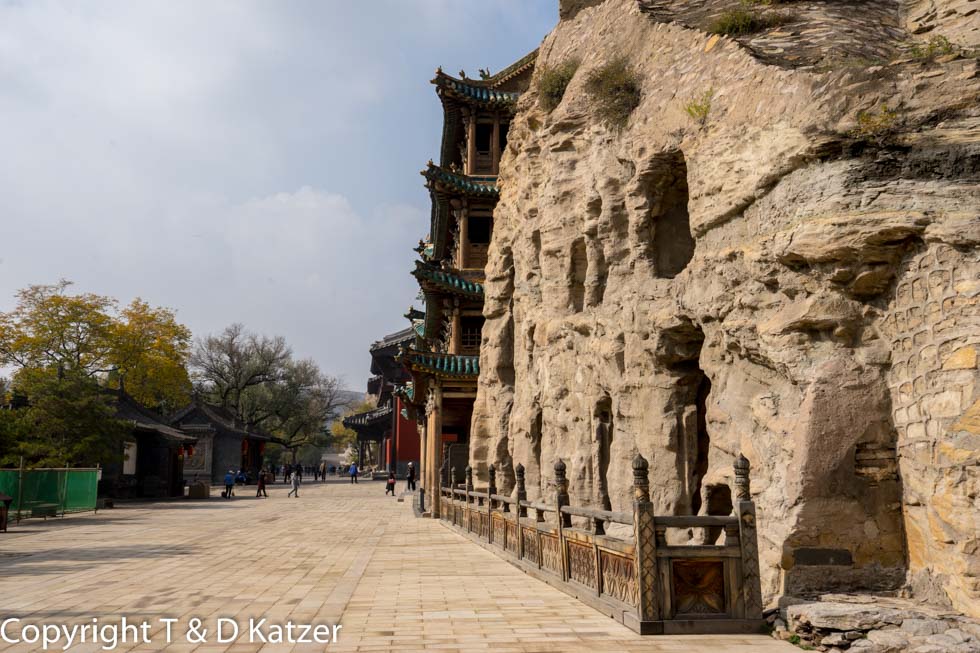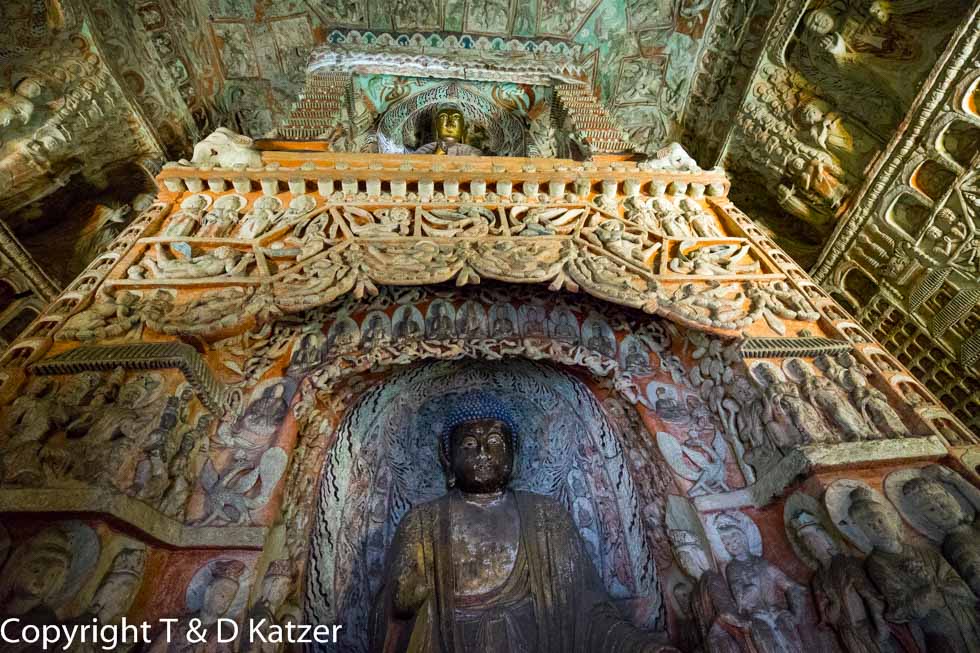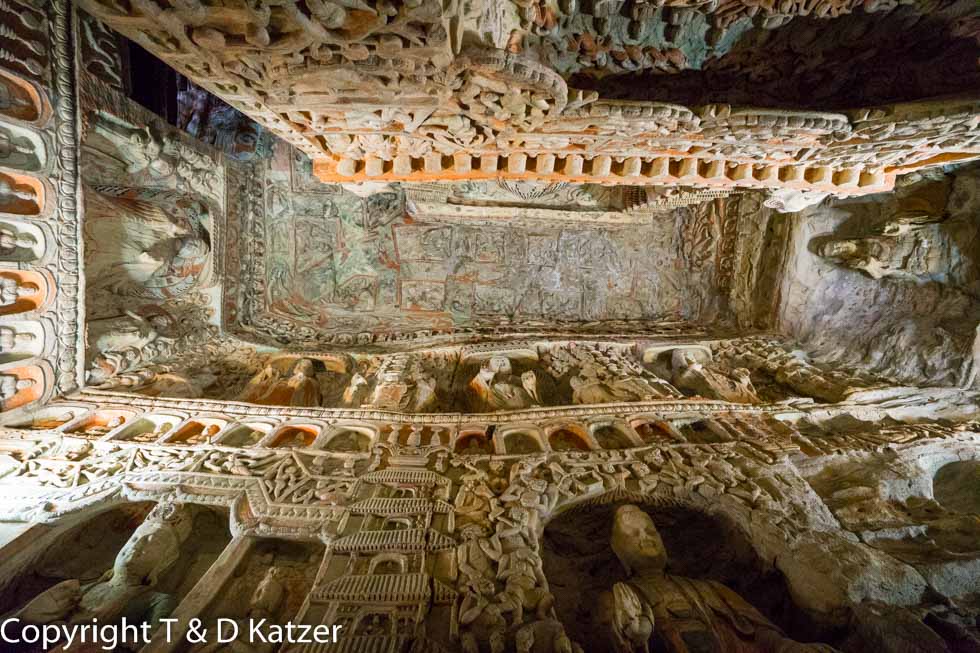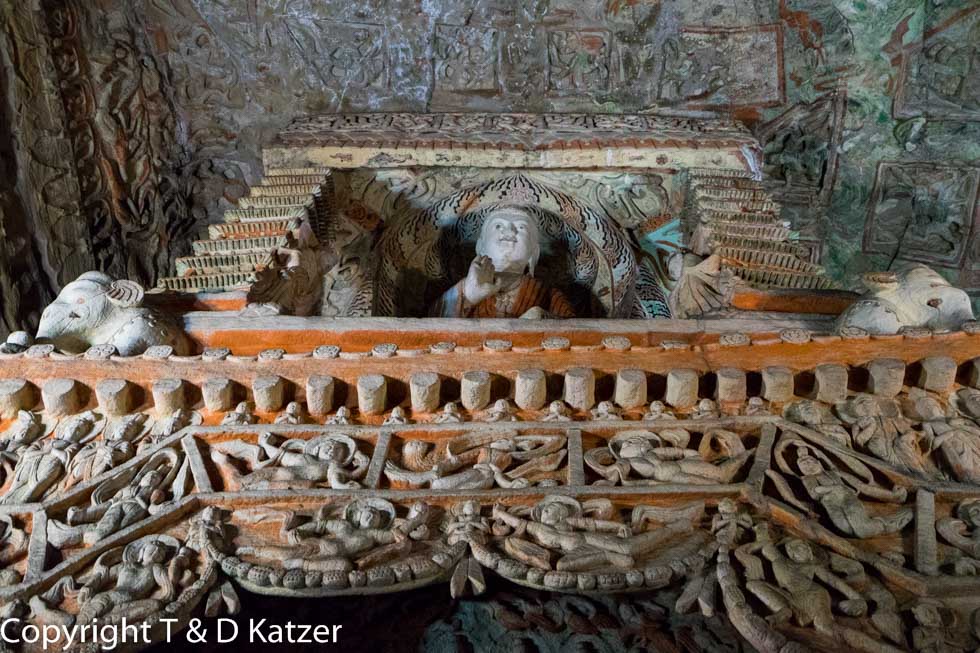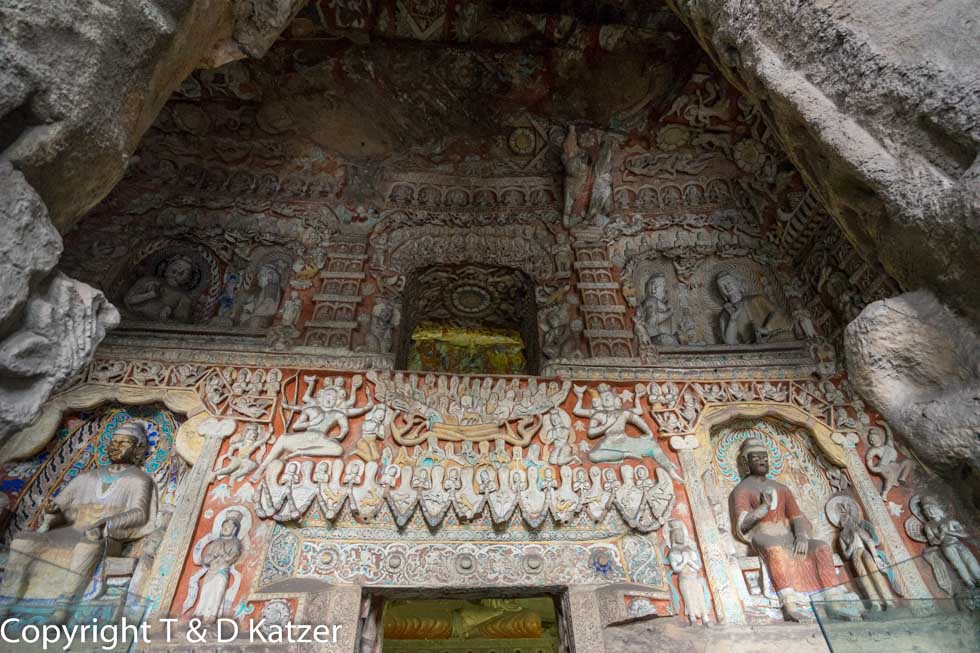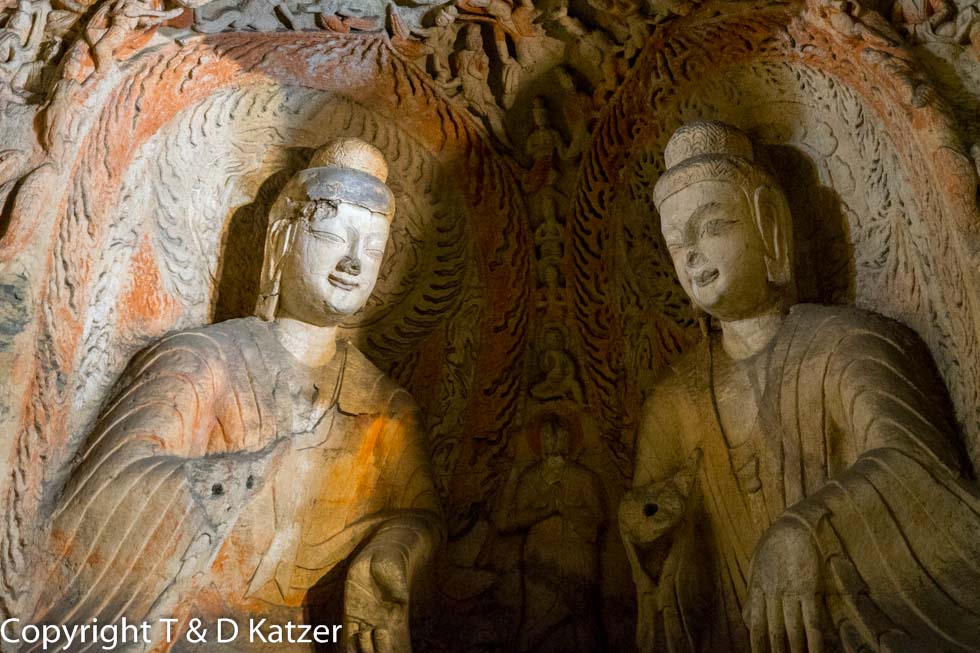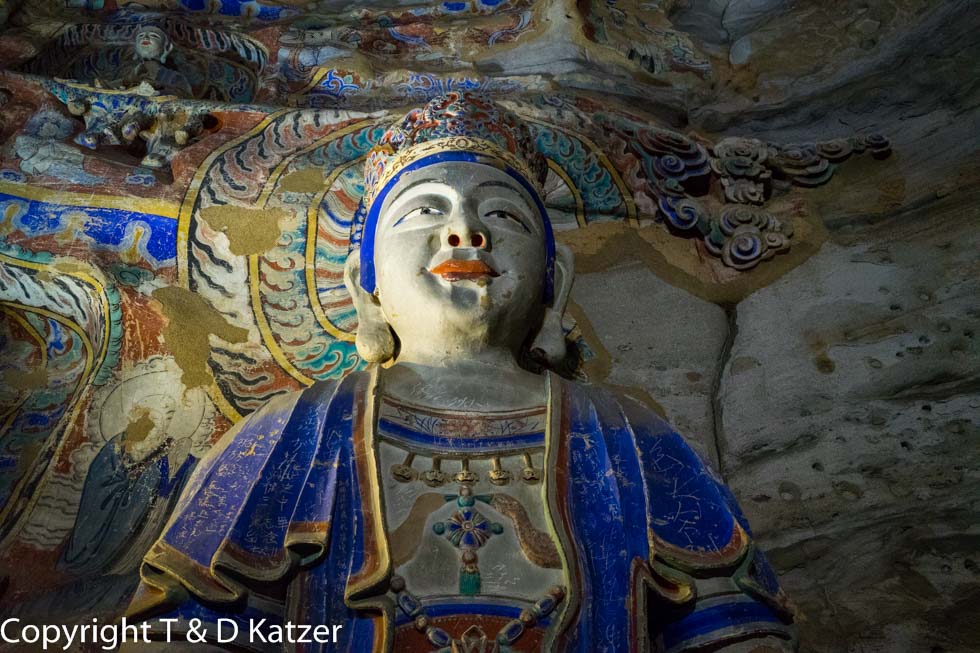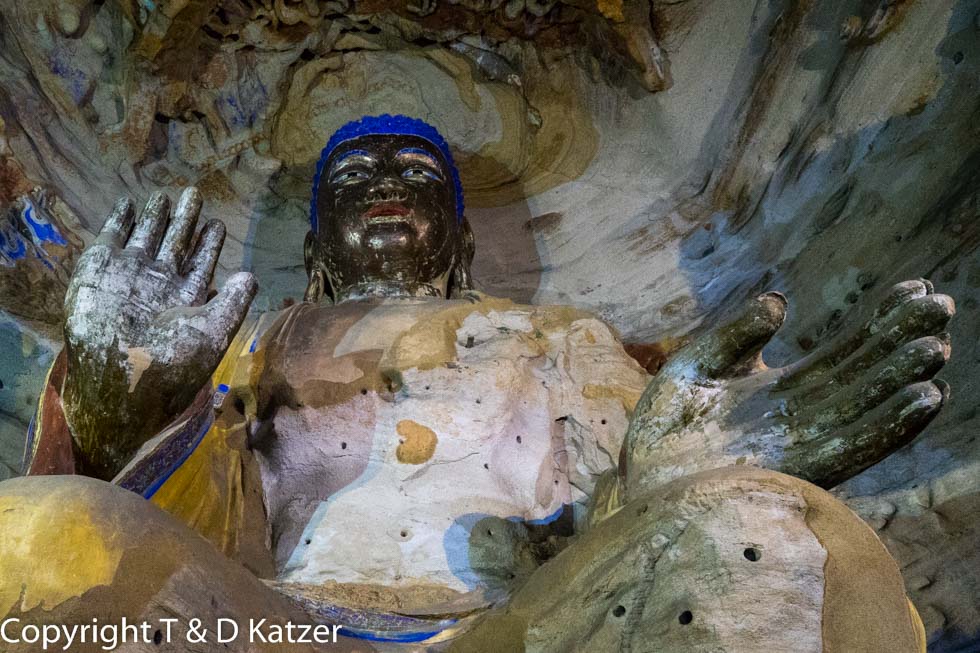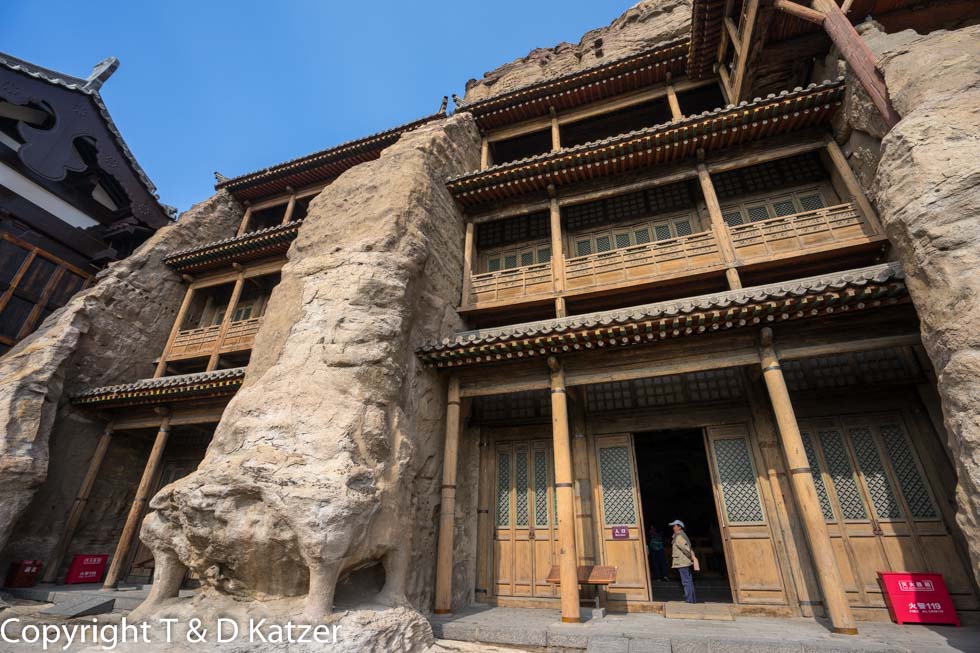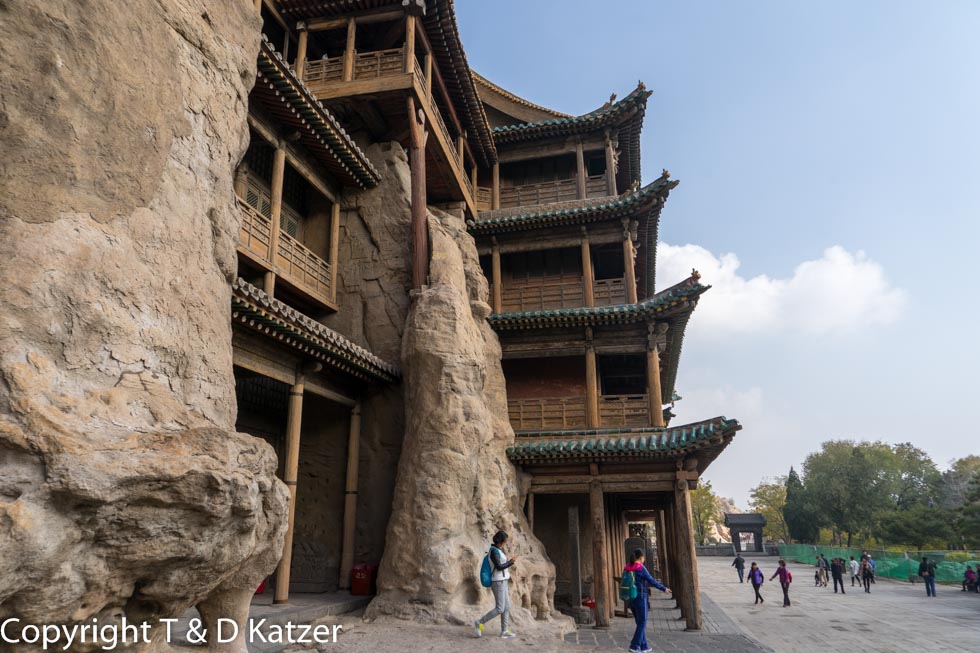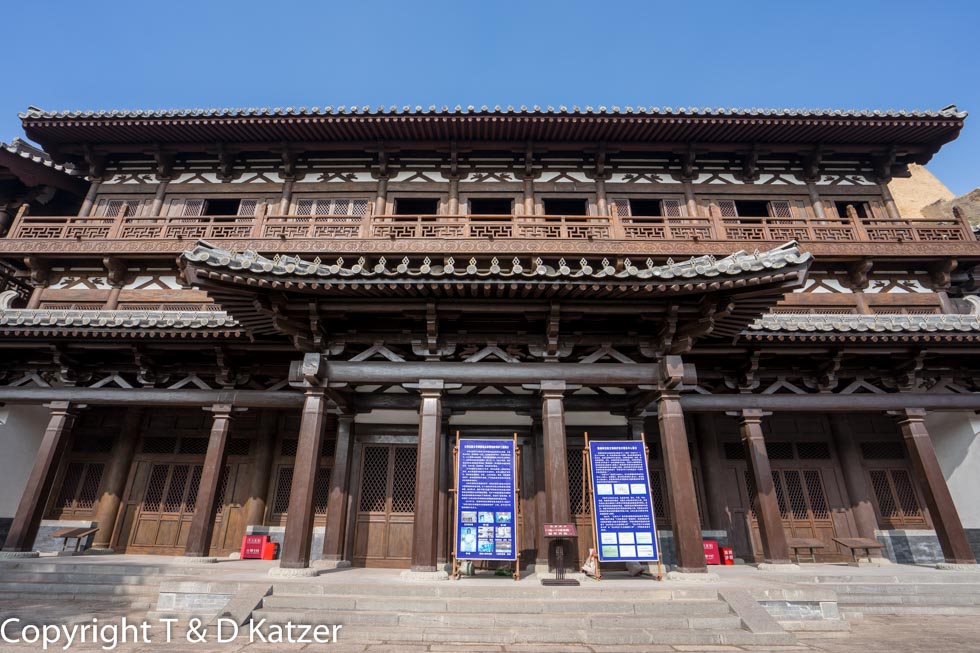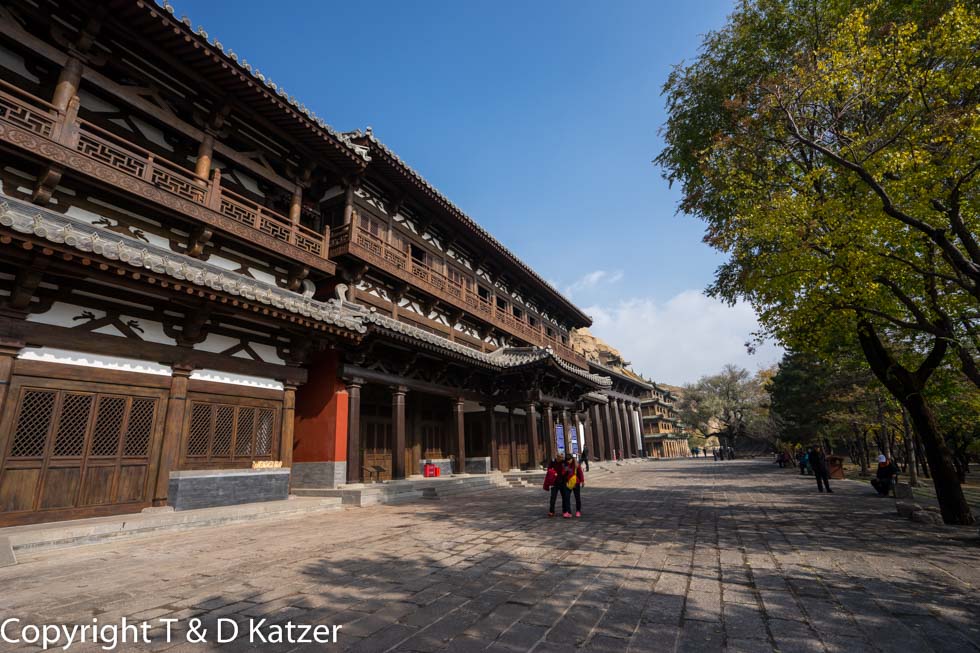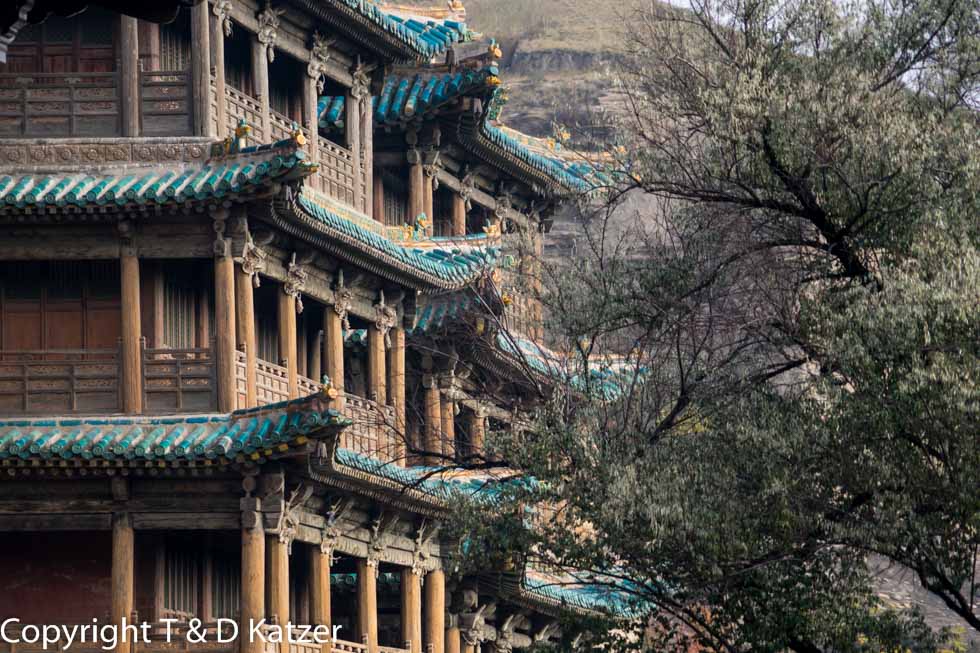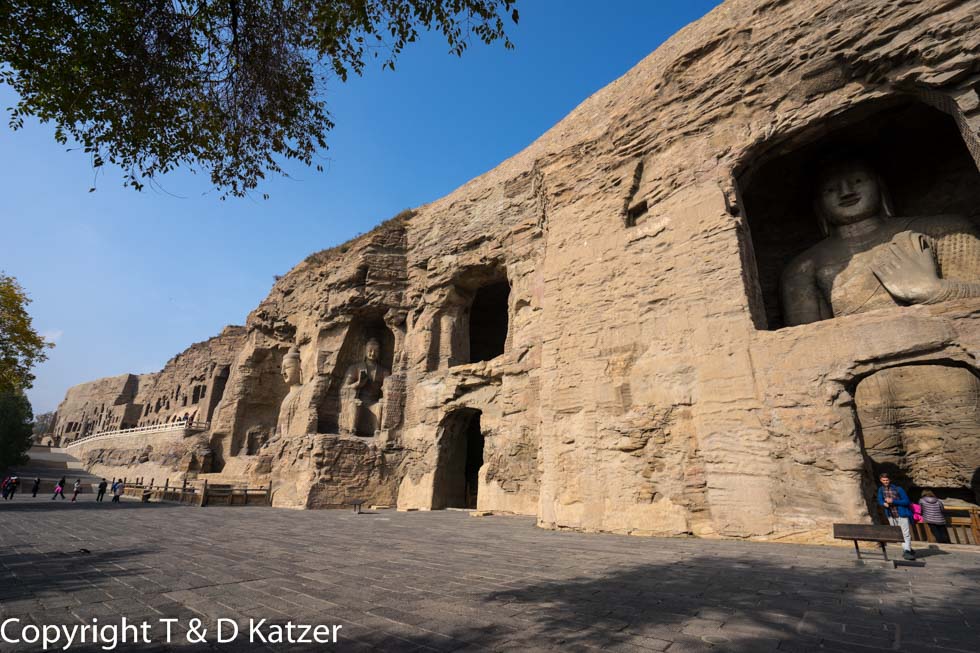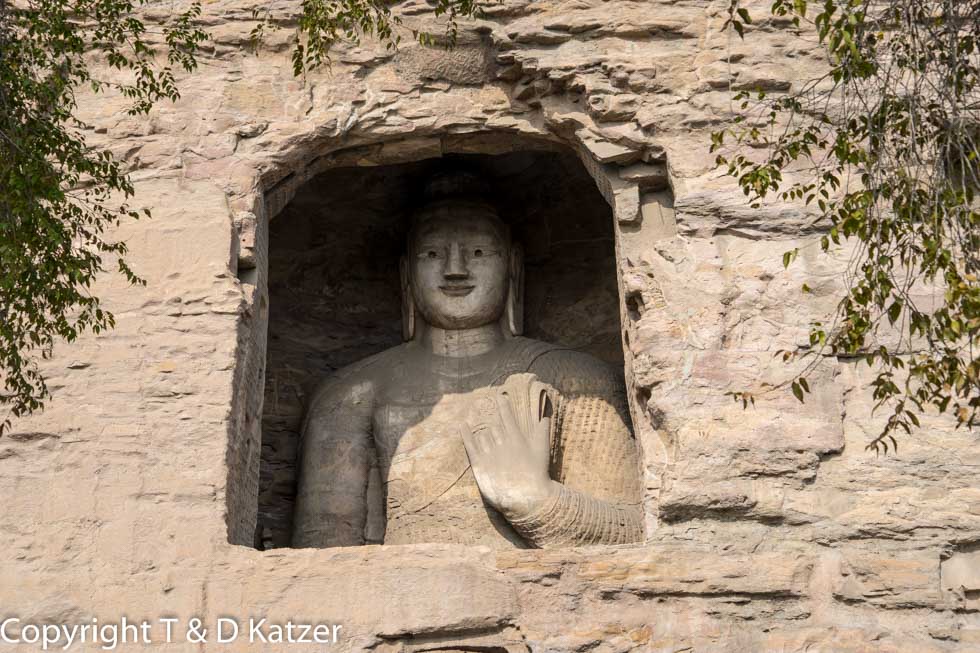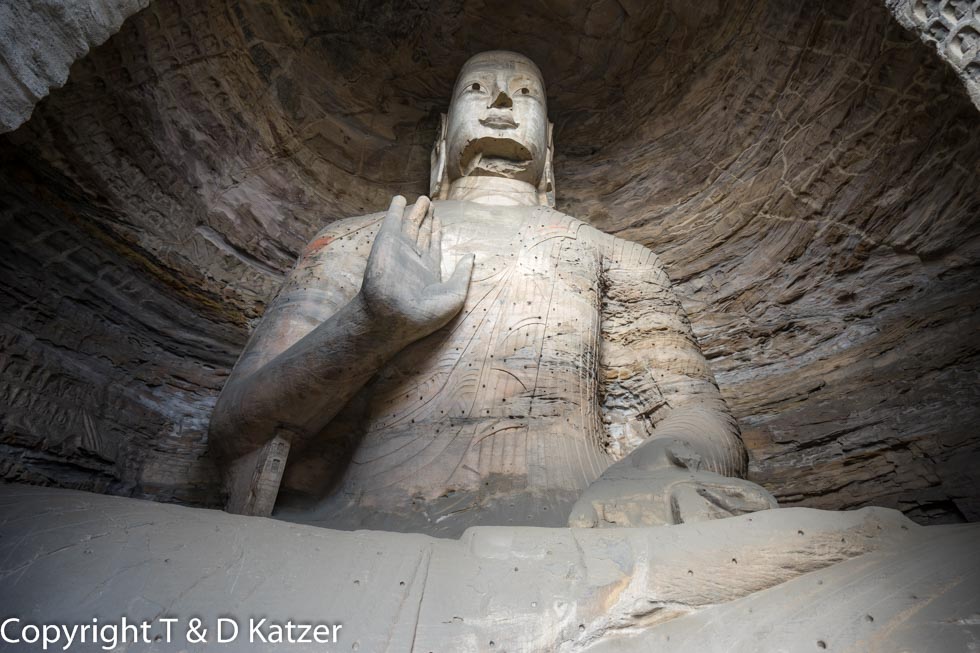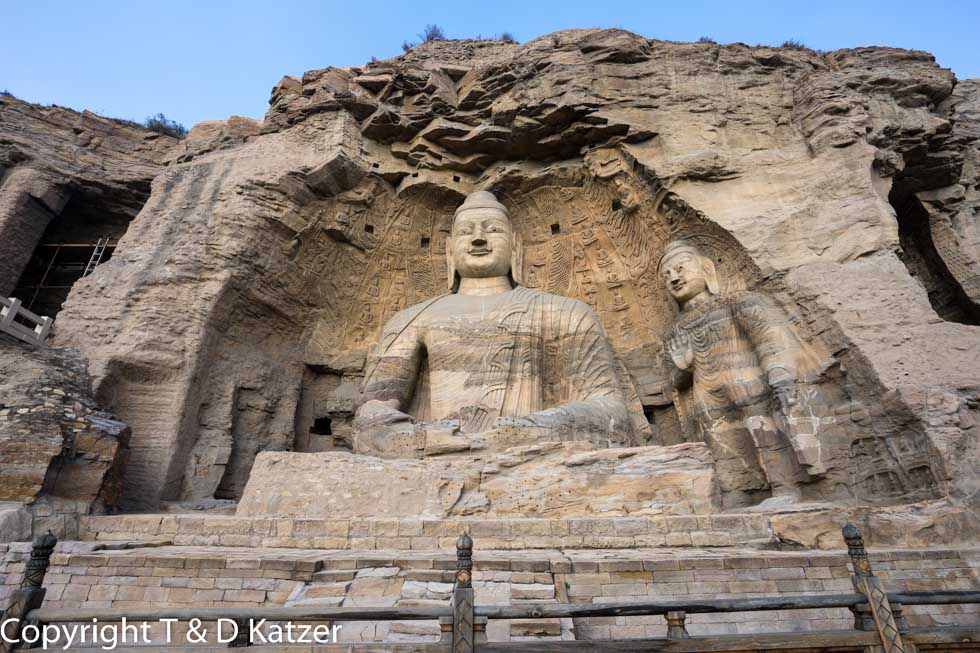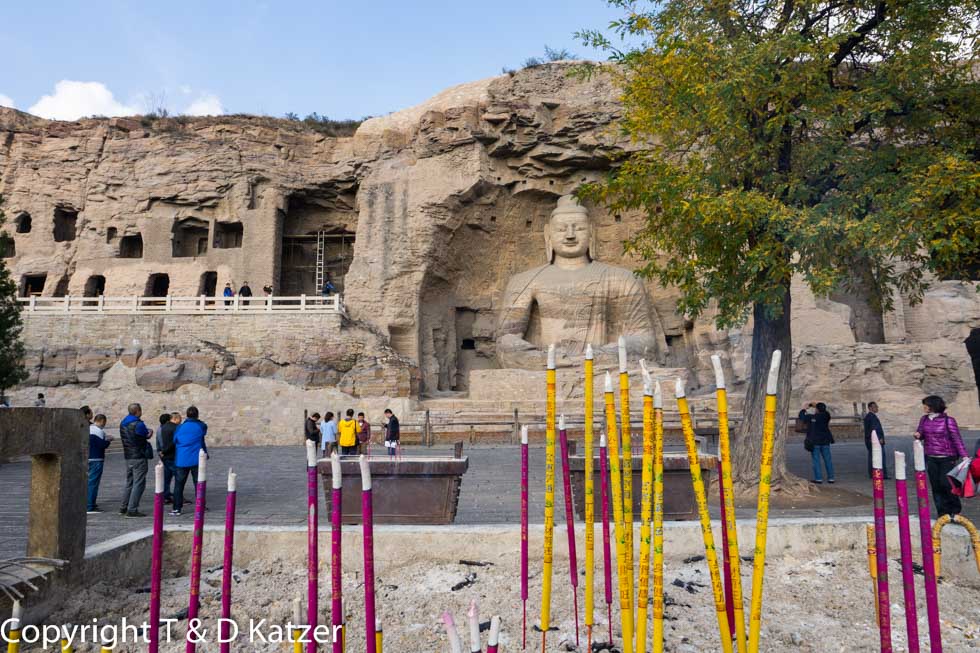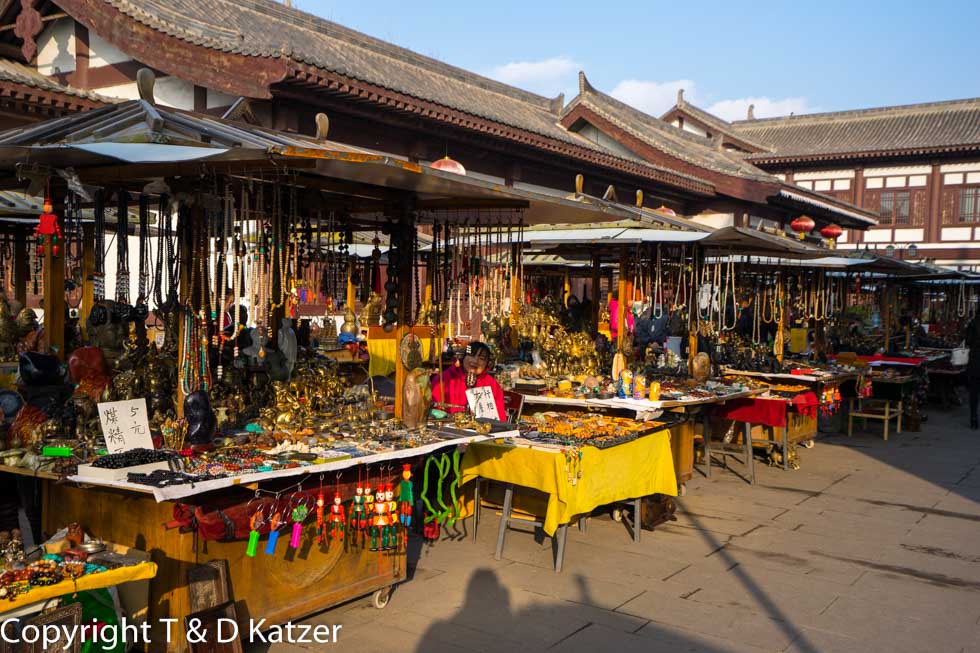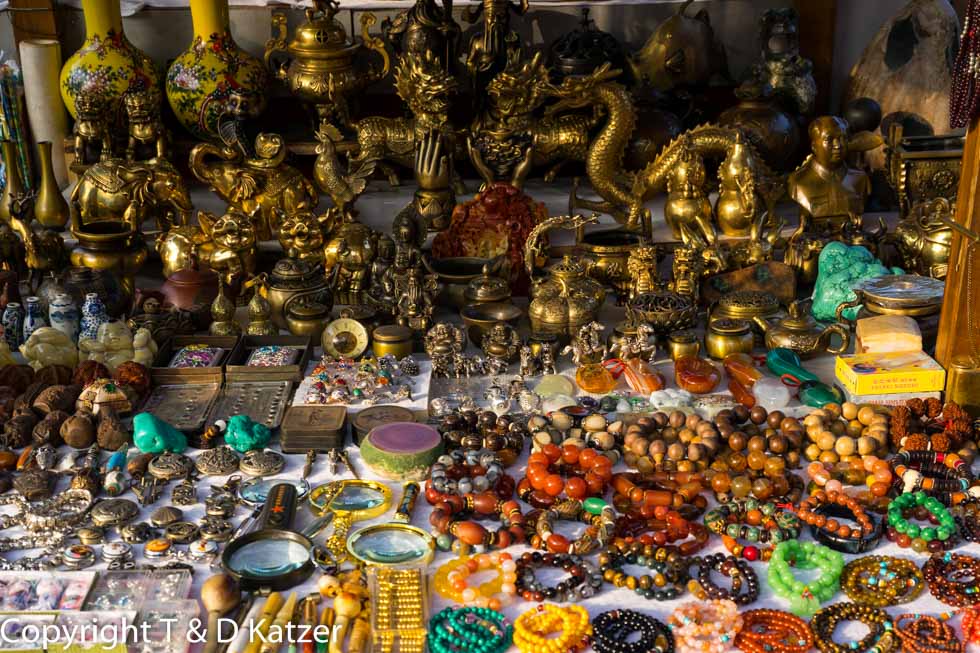
World cultural heritage
N 40°06'55.3'' E 113°18'08.9''
Date:
22.10.2015 to 23.10.2015
Day: 116 – 117
Country:
China
Province:
Shanxi
Location:
Datong
Latitude N:
40°06’55.3”
Longitude E:
113°18’08.9”
Total kilometers:
9,949 km
Maximum height:
1.350 m
Total altitude meters:
6.100 m
Altitude meters for the day:
Sunrise:
06:41 h to 06:42 h
Sunset:
5:38 p.m. to 5:37 p.m.
Temperature day max:
16 °C
Total plate tires:
8
Plate front tire:
2
Flat rear tire:
5
Plate trailer tire:
1
(Photos of the diary entry can be found at the end of the text).
In the morning Tanja takes Ajaci for a walk. In the elevator, she meets a man in fine threads. When he sees Ajaci, he opens his eyes. “Does your dog bite?” he asks. “No, Ajaci is a very nice man,” she replies and says goodbye to the gentleman.
Tock! Tock! Tock! A knock at the door a little later. “Who could that be?” I ask, suddenly feeling uneasy. Tanja shrugs her shoulders. Three men in suits look at us as Tanja opens the door. It is the general manager and two of his managers. “Come in,” asks Tanja. I have a bad feeling. Do we have to check out again now? Have they changed their minds after all? Oh man, it’s exhausting with these hotels. Especially if you have a dog with you, I think to myself. “It’s about your dog,” says the director in English. “We’re worried he might pi and pu in the room.” “Oh, Ajaci never does pi and pu. At least not in a room. We walk him four times a day.” “Four times?” “Yes. In the morning, at midday, in the evening and my husband walks him at night,” Tanja explains as I order Ajaci onto his blanket. To the management’s astonishment, he immediately lies down on it. “He’s quite well-behaved, your dog.” “He is. And he doesn’t soil anything, doesn’t bite the beds or blankets, doesn’t empty the garbage cans or nibble the wallpaper. He’s well behaved.” “Hm, I believe you,” he says and, to my relief, the director strokes our white dog. “Under no circumstances are you allowed to walk through the lobby with him. I might get into trouble. One guest has already complained. But if you go via the fire escape, there shouldn’t be a problem,” he suggests, which immediately calms my pulse. “Oh yes, we’ve already tried to use the fire escape but the emergency exit on the ground floor is closed.” “We do it like this every time you and your dog, what’s his name again?” “Ajaci.” “So whenever you want to take Ajaci for a walk, you call the room phone in the lobby.” “Will they understand me there?” “They just say: I want to go out. (I want to go out) I’ll teach my staff that. Then we’ll send a security guard to open the emergency exit for you from outside. Is that how we want to do it?” “That’s exactly how we’re going to do it,” says Tanja. The director seems relieved at our willingness to cooperate. “Well then, I wish you a pleasant stay in our hotel. And… of course you can take the elevator without your dog and walk through the lobby if you like.” “Thank you, thank you very much,” we say, whereupon the gentlemen leave our room again.
After breakfast, we get into a cab and drive to the famous Yungang Grottoes. The 252 grottoes and niches, in which the artists of the time carved over 51,000 Buddha statues from sandstone, were created in the period 460-525 AD during the Northern Wei Dynasty and have been a World Heritage Site since 2001. Here, too, China surprises us, because the sight of the Buddha statues carved out of the rock, some of which are over 17 meters high, literally takes our breath away. Buddhist art is on display here in its highest form and although we have seen many on our travels, this complex is undoubtedly absolutely incomparable and impressive. “The detour was definitely worth it,” says Tanja. “Absolutely. It’s amazing what humans are capable of,” I reply and can’t get enough of the countless figures, some of whose paintings have been preserved for 1,500 years. We stroll for hours from one grotto to the next, always along the one kilometer long yellow sandstone wall…
The live coverage is supported by the companies Gesat GmbH: www.gesat.com and roda computer GmbH www.roda-computer.com The satellite telephone Explorer 300 from Gesat and the rugged notebook Pegasus RP9 from Roda are the pillars of the transmission.
